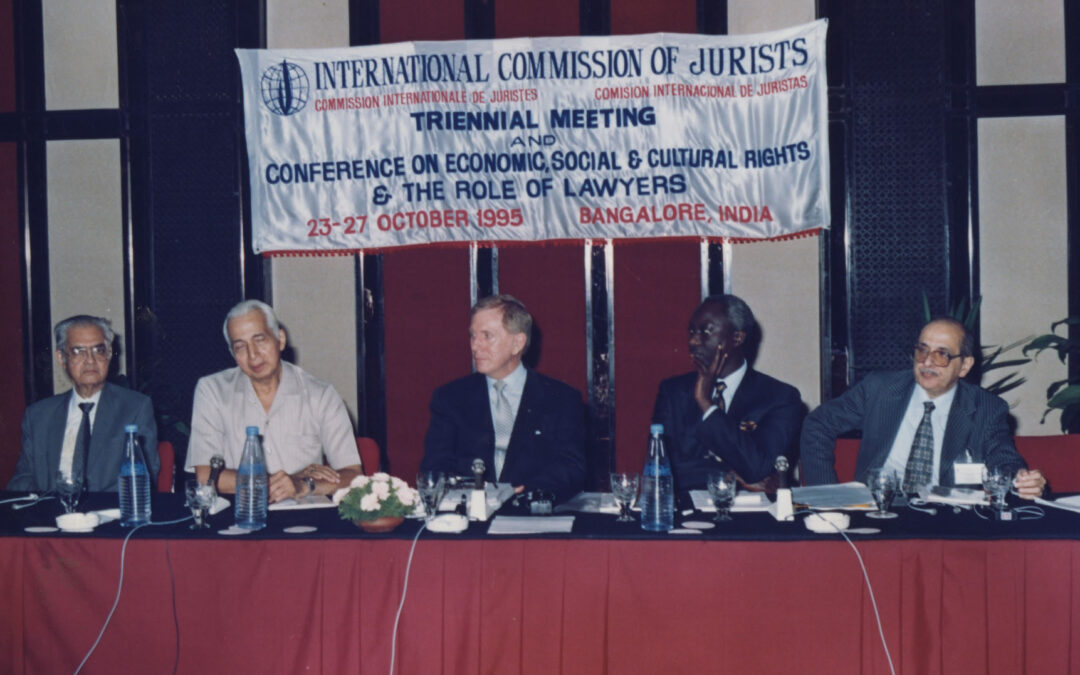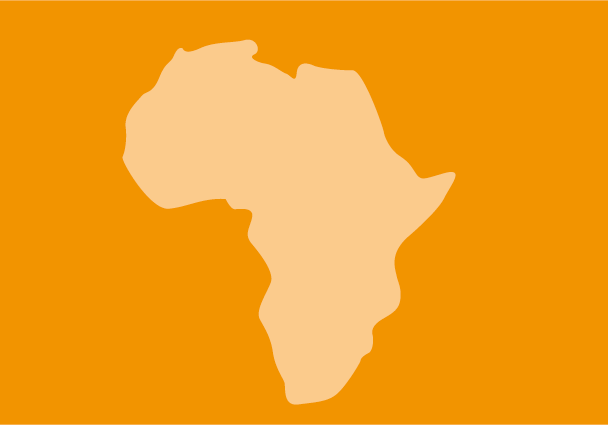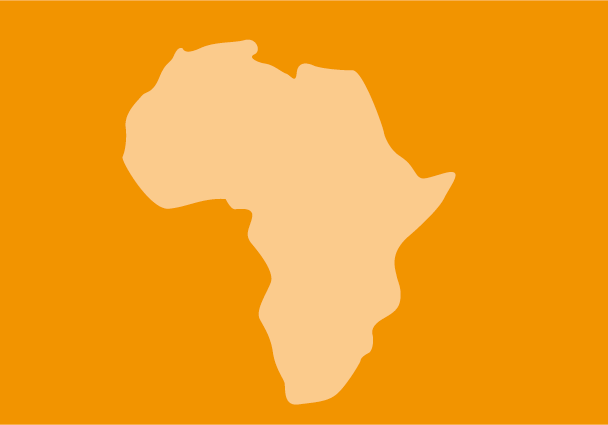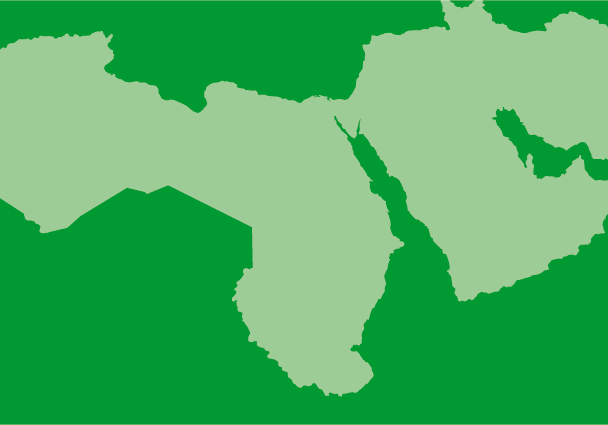
Bangalore Declaration and Plan of Action
Between 23-25 October 1995, the ICJ, in conjunction with the Commission’s triennial meeting, convened in Bangalore, India, a conference on economic, social and cultural rights and the role of lawyers.

Between 23-25 October 1995, the ICJ, in conjunction with the Commission’s triennial meeting, convened in Bangalore, India, a conference on economic, social and cultural rights and the role of lawyers.

The ICJ published a new position paper seeking to build on its previous work on this issue, in several ways.
First, it provides a thorough discussion of the ILC’s approach to the issues that the Ad Hoc Committee focused upon at its first meeting. Second, the paper summarises the discussions of the Ad Hoc Committee concerning these issues. Third, it offers the ICJ’s comments and suggestions on several of the issues, continuing and expanding upon the themes developed in the ICJ’s earlier papers.
This comparison of the approaches taken by the ILC and the Ad Hoc Committee offers a useful insight into the issues that must be addressed in establishing a permanent Court. The ILC is a body of independent legal experts charged with the task of drafting the Statute of the Court. The Ad Hoc Committee is composed of governmental delegations from many of the world’s nations. Certainly, some of the criticisms of the Statute made during the Ad Hoc Committee meeting reflect this difference in background.”
The paper focuses on:
International Criminal Court-position paper-1995-eng (full text in English, PDF)

Le rapport porte essentiellement sur le compte rendu des élections législatives du 11 juin 1995, qui étaient aussi une première pour la Guinée, aussi bien au niveau du nombre des partis, que des candidats qui se présentaient devant les électeurs.
L’objet de ce document est de décrire cette première expérience de la Guinée, en se basant sur:
d’en tirer des leçons pour l’avenir et surtout de présenter un certain nombre de recommandations.
Le présent rapport comporte donc quatre parties, soit:
Guinee-elections-mission report-1995-fra (Texte complet en PDF)

Le rapport porte essentiellement sur le compte rendu des élections législatives du 11 juin 1995, qui étaient aussi une première pour la Guinée, aussi bien au niveau du nombre des partis, que des candidats qui se présentaient devant les électeurs.
L’objet de ce document est de décrire cette première expérience de la Guinée, en se basant sur:
d’en tirer des leçons pour l’avenir et surtout de présenter un certain nombre de recommandations.
Le présent rapport comporte donc quatre parties, soit:
Guinee-elections-mission report-1995-fra (full text in French, PDF)

La mission visait à identifier et à définir les projets dont la mise en oeuvre est de nature à contribuer à l’amélioration et au renforcement de la promotion et de la protection des Droits de l’Homme au Maroc.
Le rapport contient neuf chapitres, comme suit :
L’Annexe contient des propositions et des rapports des projets par le Ministère des Droits de l’Homme et des ONG locales de défense des droits humains.
Morocco-human rights projects-fact-finding report-1995-fra (full text in French, PDF)
Morocco-human rights projects-annex-fact-finding report-1995-fra (full text in French, PDF)